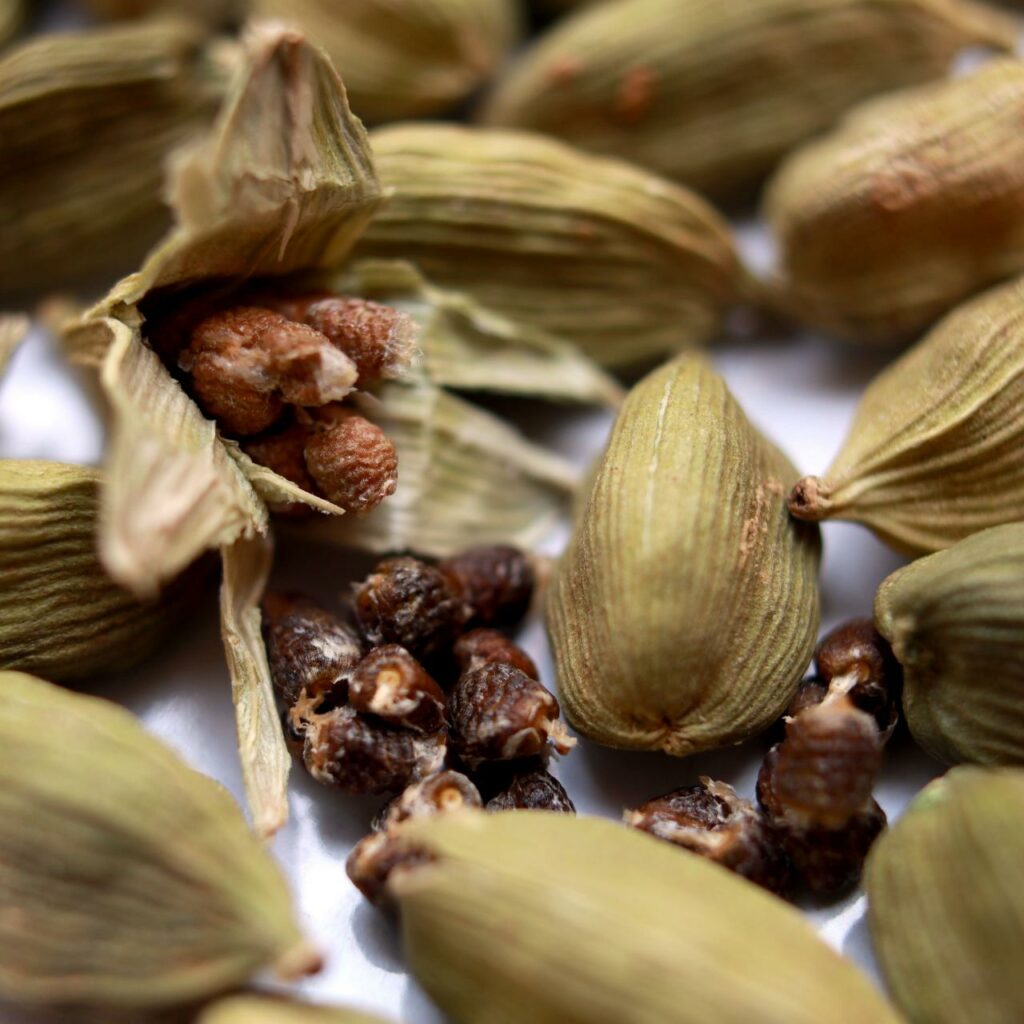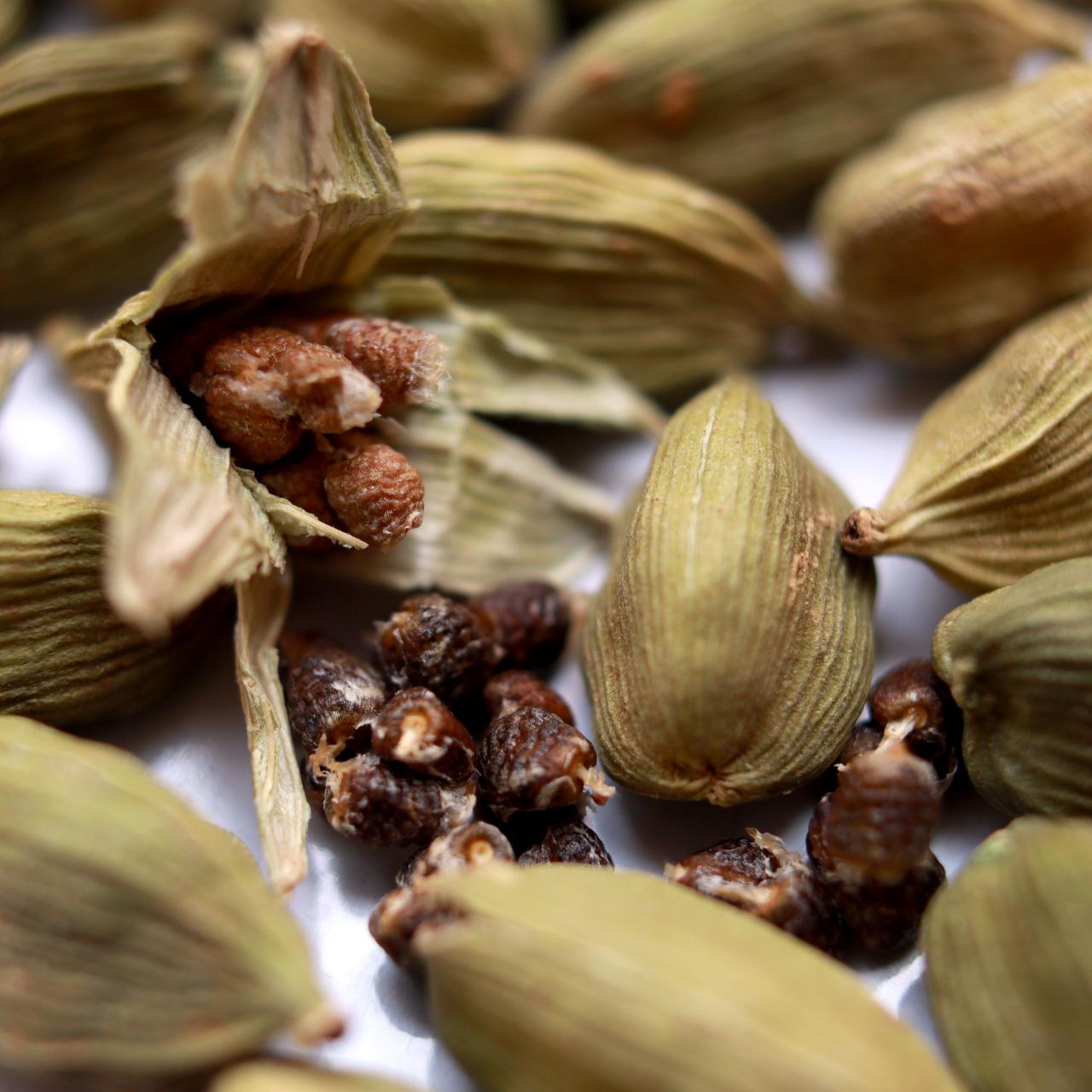
Cardamom is often celebrated for its delightful aroma and health benefits, but consuming it in excess or under certain conditions can lead to potential side effects. While it’s generally safe in moderate amounts, here are some of the dangerous side effects of cardamom that you should be aware of.
1. Allergic Reactions
Some individuals may experience allergic reactions to cardamom, especially when consumed in large amounts. These reactions can include skin rashes, difficulty breathing, and swelling of the mouth or throat.
Symptoms to Watch For:
-
Skin rashes or hives
-
Swelling of lips, tongue, or throat
-
Difficulty breathing or wheezing
-
Severe itching
If you notice any of these symptoms after consuming cardamom, it’s important to seek medical attention immediately.
2. Gallstone Complications ⚠️
For individuals with gallstones, consuming large amounts of cardamom may cause complications. Cardamom can stimulate bile flow, which may trigger gallstone movement and lead to pain or blockages in the bile ducts.
Why It’s a Problem:
-
Cardamom may cause gallstones to move, potentially leading to blockages.
-
This can result in severe abdominal pain and require medical intervention.
If you have gallstones or are prone to gallbladder issues, consult your doctor before consuming cardamom in large quantities.
3. Drug Interactions
Cardamom can interact with certain medications, especially anticoagulants (blood thinners) like aspirin, warfarin, and clopidogrel. This can increase the risk of bleeding.
Possible Issues:
-
Cardamom may enhance the effects of blood thinners, leading to an increased risk of bleeding or bruising.
-
Consult your healthcare provider if you’re on medication that could potentially interact with cardamom.
4. Lowered Blood Pressure
Cardamom has been shown to help lower blood pressure, which is beneficial for some. However, if you already have low blood pressure (hypotension), consuming too much cardamom can lead to dizziness, fainting, and weakness.
Why It’s Risky:
-
Cardamom’s natural ability to reduce blood pressure may exacerbate low blood pressure, causing dangerous drops in BP levels.
If you already suffer from low blood pressure, it’s best to limit your intake of cardamom and monitor your BP regularly.
5. Potential Digestive Issues
While cardamom is often used to improve digestion, consuming it in large amounts can sometimes lead to gastrointestinal issues, such as nausea, diarrhea, and stomach cramps.
Why It Happens:
-
Overconsumption of cardamom can irritate the digestive system, leading to discomfort, bloating, or other digestive problems.
If you experience stomach discomfort after eating large amounts of cardamom, reduce your intake to see if symptoms improve.
6. Risk During Pregnancy
Though cardamom is considered safe in small quantities during pregnancy, consuming it in large amounts may pose a risk. Excessive cardamom intake can potentially stimulate uterine contractions, which could lead to complications like premature labor.
Why It’s a Concern:
-
High doses of cardamom may cause contractions or other complications during pregnancy.
Pregnant women should use cardamom in moderation and consult with their healthcare provider before adding it to their diet in large amounts.
Final Thoughts:
While cardamom is a flavorful and healthy spice in moderate amounts, consuming it in excess or under certain conditions can lead to dangerous side effects. If you have allergies, gallstones, low blood pressure, or are pregnant, it’s essential to be cautious with your cardamom intake. When in doubt, consult a healthcare provider to ensure you’re using this spice safely.




